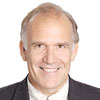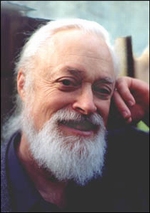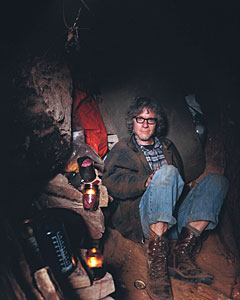 May 3, 2006
May 3, 2006
Citizens Party, part II
Informed, Engaged, Democracy
Collective Public Intelligence
By: Robert D. Steele
Introduction
If we want an extraordinary future for all of our children, America and Americans must embrace reality. While, as a society, we may have recently found it comfortable to ignore reality, reality is most assuredly going forward, with or without us. What we have allowed to happen from 2000 to date can only be described as a national break-down. We the People failed to do our duty, to pay attention, to stay informed, to remain actively engaged and to keep our government honest. Today, both the Republican and the Democratic Parties are “running on empty”. They cannot be trusted to represent the Republic within the current “winner take all” system. In addition, their exhausted 20th century solutions that got us to where we are today cannot be expected to get us to where we need to be tomorrow. After a great deal of reflection, I have come to the conclusion that we need a Citizens Party, not to compete with the Democratic or Republican, or the other 60 plus parties, but to bring all of us together on the one big issue that really matters: Electoral Reform. If we are successful, a Democratic or Republican Presidential candidate willing to field a Vice President from the counterpart party, and a Coalition Cabinet, could win in 2008.
Citizens Party
I have three “big ideas” that I want to present for a “collective public intelligence” process.
Idea #1:
A Citizens Party (www.citizens-party.org) must be created. This new approach would be a party that is a “second home”, or alternative party, that respects every individual’s primary political affiliation, but offers them an opportunity to come together with citizens from other parties to keep government honest. It would NOT be a party set up to compete with all the other parties! Moderate Republicans like me, for example, can join forces with those from other parties to beat back the extremist ideological and fundamentalist tendencies of the original Republican Party. We can all, as Paul Ray explores in his discussion of “The New Political Compass,” create coalitions across all issue areas. We can use the power of actively engaged citizens, networked, collective, public intelligence, to hold the Democratic and Republican parties in particular accountable for representing their individual members rather than special interests.
Idea #2:
There are actually two really big issues on which we can all come together as citizens in 2006 and again in 2008. They are: 1] Electoral Reform and 2] Energy/Environmental policy — as discussed by Thomas Friedman. The reality is that our votes no longer count in the contrived monopoly that the Republicans and Democrats have established. Even if our candidate is elected, within weeks they have fallen prey to the corrupting combination of “the party line” which demands that they vote as they are told to vote by the party leadership; and special interests who bribe them to betray the people and favor specific corporations not acting in our interest.
Idea #3:
A Citizens Party can welcome immigrants enroute to citizenship as associate members who can use the Citizens Party as a neutral ground within which to both learn and practice their civic responsibilities, and be exposed to the many different parties that co-exist in America. A Citizens Party can offer generic civic instruction and opportunities for community service, and then once an individual becomes a citizen, they can be asked to declare a primary political affiliation, while retaining their “second home” in the Citizens Party. Membership cards for non-citizen immigrants should show where they are in their path toward citizenship, and be a source of pride and evidence of their commitment.
Discussion
The U.S. political process has been lost to monied special interests, including the most corrupt of those special interests the Republican and Democratic parties, who use party line control as a means of achieving outcomes that are NOT in the best interests of the public at large. At the same time, the U.S. Government and the national infrastructures that it regulates, from education and health to water, energy, industry, finance, and telecommunications, have all become dysfunctional. Consider this summary drawn from Alvin and Heidi Toffler in Revolutionary Wealth
:
Their first key focus is on TIME and its relation to space, knowledge, and effectiveness as translated into wealth. Innovative businesses are going 100 mph; civil collective groups at 90 mph; the US family at 60 mph, labor unions at 30 mph, government bureaucracies at 25 mph, education at 10 mph, non-governmental organizations including the United Nations at 5 mph, US politics and the participation process at 3 mph, and law enforcement and the law it enforces at 1 mph. This is really quite a helpful informed judgment as to the relative unfitness of all but two of the groups.
Now, keeping in mind—and Henry Kissinger has expressed similar concerns about the archaic slow processes of government and politics and law enforcement—the abysmally slow rating given by the Tofflers in relation to real life moving at 100 miles an hour, consider what this means when attempting to protect America and nurture American prosperity in the fact of global threats and in relation to global opportunities. Below is a threat table based on the report of the High-level Panel on Threats, Challenges, and Change (A more secure world: Our shared responsibility, United Nations, 2004) where LtGen Dr. Brent Scowcroft was the US representative. Note that poverty, infectious disease, and environmental degradation head the list, and that terrorism is next to last on the list. The percentages for the contribution of Open Source Intelligence [OSINT] to understanding and addressing the problem are my own informed judgment, but they are consistent with the “80-20” rule. I believe we can rely on the general point being made by this table, i.e. that we need to redirect at least half the secret intelligence budget toward open sources and all ten of these threats, instead of obsessing on secrecy and terrorism alone.
Threat to the Security & Prosperity of the USA % Open Source
Threat #1: Poverty ……………………………………………………… 95%
Threat #2: Infectious Disease …………………………………………. 99%
Threat #3: Environmental Degradation ………………………………. 90%
Threat #4: Inter-State Conflict ………………………………………… 75%
Threat #5: CivilWar …………………………………………………….. 80%
Threat #6: Genocide ……………………………………………………. 95%
Threat #7: Other Large-Scale Atrocities ……………………………… 95%
Threat #8: Nuclear, radiological, chemical, biological weapons ….. 75%
Threat #9: Terrorism ……………………………………………………. 80%
Threat #10: Transnational organized crime …………………………… 80%
Average Importance of Open Source Intelligence 86.4%
We are spending close to $60 billion a year on secret sources, and less than $600 million on open sources of relevant national security information—on this alone the Bush Administration can be proven as derelict. At the same time, we are spending over $500 billion a year on a heavy-metal military, and next to nothing on waging peace or implementing what General Al Gray, then Commandant of the Marine Corps called for in 1988, “peaceful preventive measures.” We can still benefit immensely from the insights presented in May of 1966 by then Sec. of Defense Robert McNamara in his speech “Security in the Contemporary World”: In a modernizing society, security means development. At the same time, because our secret intelligence community is so out of touch with reality, and our political system makes it easy to ignore secret intelligence, we have a federal budget that is catastrophically mis-managed, combined double deficits (debt and trade) with excessive entitlements and subsidies, and mis-directed expenditures that over-spend on a heavy metal military — including missile defense and other unrealistic, or unnecessary capabilities, while severely neglecting “soft power” including cultural, diplomatic, economic, educational, and informational sources of national power. As McNamara said in 1966: The decisive factor for a powerful nation already adequately armed is the character of its relationships with the world. Finally, because our political system is corrupt and our national counterintelligence and crime intelligence capabilities are virtually non-existent, we have failed to increase federal tax revenues by failing to demand that corporations pay a fair share of the federal revenue (they pay 6% down from a high of 32%, this needs to be brought back up to 25%), by failing to eliminate subsidies and other tax breaks illicitly obtained by special interests, and by failing to detect tax fraud. Taken together, these could produce an extra $500 billion a year. A Citizens Party could utilize the National Budget Simulation, available online, to develop a balanced budget that clearly identifies the differing choices that each “wing” of the party makes, and puts before the larger public the specifics of the budget that demand resolution. Our budget is too important to be left to one party to manage without public oversight. Here are a few more thoughts:
1. 2008 will not be 2000.
The Cheney-Bush Administration has radicalized America, everyone is now ready for decisive and reasoned leadership, and we can field a unity-reform team rather than a weak Democratic choice. America is ready to be brought back together. A winning and collaborative coalition of 20% of the Republican vote, 20% of the non-Democratic vote and a further 20% of the immigrant vote, as influenced by their relatives still in Latin America, China, India, Korea, and Viet-Nam, can make an important contribution to a Democratic victory in 2008, especially if we begin setting the stage in 2006 while campaigning for others. However, Democrats can only win if they adopt the Citizens Party platform.
2. One Dog-Catcher Issue.
The “dog-catcher” issue is now and will remain this: “does your vote count?” The answer to this question for most, including those that vote and then lose their Congressional representative to the party line and special interests, is no; consequently their concerns in other major issues are unheard and not represented. I believe that America will come together on our promise to reform the electoral process—everything else, including governance, policy, and budgetary reform, will follow from that. Making voting the first issue will set the stage for the second: Energy & the Environment. It is important to make voting the hinge issue, not the environment, or anything else, as the latter are “intangible” threats neither understood nor valued by a third of the electorate.
3. Citizens Party Breaks the Partisan Log-Jam.
Paul Ray knows what he is talking about when he discusses cross-over alliances on new progressive issues. I am a life-long moderate Republican who is also religious but in a practical rather than a fundamentalist sense. I have been giving speeches across the country and my sense is that we could begin the process of winning in 2008 by encouraging allies to start the Citizen Party in 2006. This new entity would be used to invite all Americans to consider a new concept: “dual political membership” in this new party that welcomes moderate Republicans, conservative Democrats, Independents, Libertarians, Greens, Reforms, and the members of the Dean set into a safe haven with one common cause: restoring the integrity of the electoral and representational processes. Further, it would also allow for the creation of an innovative Coalition Cabinet (next point). This party will, at a minimum, be committed to electoral reform that levels the playing field and isolates the extremists. This coalition party could well enable us to re-establish the core American values of integrity, vision and compassion for the greater public in America as well as our stewardship of the global environment. In the event the Democratic Party nomination goes to a polarizing candidate who cannot win the general election, this new party could be critical for the candidacy of a more generally acceptable Democratic candidate willing to choose a moderate Republican as their Vice President, and commit to a Coalition Cabinet to be announced in advance of the general election.
4. We Must Form a Coalition Cabinet now.
Such a cabinet, formed now as a shadow government, has several potential advantages for bringing citizens from disparate political groups together, especially since the Democratic traditionalists will not be willing to abandon the Master/Slave hierarchical and star-centered system. Coalition Cabinet members can serve as our outreach Ambassadors in building the big umbrella for decisively wresting power from the extreme right by recruiting “wings” from each party into the Citizens Party. Further, it could be used for developing, from 2006 to 2008, policies that make sense and pass the smell test. This will also allow us, in 2008, to articulate sound policies in detail—demonstrating the fruits of your innovative approaches—and to challenge the other candidates for President, in both the primaries and the final election, to identify their Cabinet choices. If they do not, we can mock them for not being able to pick a government, much less run one, and if they do, we challenge them to add selected Cabinet candidates (State, Defense, Justice) to the Presidential debates process. We win by showing that we have a balanced team, not a personality cult.
5. Peer-to-Peer Co-Intelligence.
There are creative resources, including Joe Trippi and the two authors of the new book on Crashing the Gate, as well as others, who have a lot to offer in the way of innovation in the peer-to-peer engaged democracy space. My friend Tom Atlee, for example, is at the forefront of the national Co-Intelligence or Collective Intelligence movement, and I believe that we are now at a point where Public Intelligence can both elect a coalition reform ticket, and drive sound Public Policy. We need votes, and contributions, but we also need a consensus of shared ideas.
6. Immigration & Catholic Social Justice.
I am in touch with the U.S. Council of (Catholic) Bishops on the matter of reducing poverty and increasing social justice among Latinos, who are inherently Catholic and more likely to be won over by a pro-immigration, pro-Catholic candidate (see point 9). This will be a big issue. Paul Ray’s help in dissecting this issue by voting base will be important. However, it will also be connected to foreign perceptions of America, and foreign influence on immigrants that vote—we need to promulgate our vision globally, in at least 15 languages. I believe that Michael Cudahy (a former Republican activists who worked on campaigns for G. H. W. Bush), Clyde Prestowitz, and a few other moderate Republicans can deliver 20% of that vote to Citizen Party candidates. I can find Citizen Party candidates another 20% bump in the voting immigrant pool. I am, incidentally, a white Latino, born in New York of a naturalized Colombian mother with Spanish ancestry and an American father of English and Scottish descent. This idea of a Citizens Party can, by the way, be migrated to all countries, and is not exclusive to our Nation.
7. Reality-Based Budgeting
This is a concept I have been working on for some time. I have been working with very senior former staffers from the Office of Management and Budget on developing this project. We are convinced that we could take the online National Budget Simulation and turn it into a tool for both establishing public consensus on revenue, spending; and for establishing a balanced budget at all levels of governance. We can make the budget process transparent and participatory, and we can really bring the power of the Open Source approach to help the voters understand where things now stand and are going at all levels of government and in the private sector.
8. Presidency.
I believe we should explore new concepts of governance in which the President focuses on the broad strategic issues, the really big picture and the really big alliances (both domestic and foreign), while the Vice President—ideally a former Governor with significant operational experience—serves as Chief Operations Officer with three Chiefs of Staff—one for policy, one for strategy, and one for treasury—ways and means.
9. Faith-Based Governance.
Finally, I believe that Rabbi Michael Lerner’s Left Hand of God and my friend David Johnston’s Faith-Based Diplomacy both have something to offer. If combined with due respect for the passion of the black church as identified by Bonhoeffer and represented in part by Al Sharpton and Jessie Jackson, I believe we could find innovative ways of revitalizing the faith-based compassion of the Democratic Party, while opening doors to those of other faiths who have not found a haven where they feel they belong. Many Republicans of faith are beginning to see the hypocrisy of the extreme right fundamentalists. We cannot win the Latino vote, or the Korean vote, without showing that strong faith, loving faith and family values, are part of the proposition. America right now needs hope, and rational answers alone will fall flat. We need to offer pragmatic community-oriented faith versus nutty militant faith.
Conclusion
In 1994, Al Gore used the phrase “harnessing the distributed intelligence of the Whole Earth.” Now we have a clear and present emergence of networked “collective intelligence” or co-intelligence. It is clear today that the people in the aggregate can generate more campaign contributions, more votes, and more wisdom, than any collection of corporations or special interests. The Citizens Party is a non-rival means of taking back the power at the individual level, while respecting the unique concerns and insights of each of the traditional parties. That’s what I think. What do you all think?
A note on Mr. Steele
In the course of a twenty-five year national security career, Mr. Steele has served as a Marine Corps infantry officer and service-level plans officer; fulfilled clandestine, covert action, and technical collection duties; been responsible for programming funds for overhead reconnaissance capabilities, contributed to strategic signals intelligence operations, managed an offensive counterintelligence program, initiated an advanced information technology project; and been the senior civilian responsible for founding a new national intelligence production facility. He was one of the first clandestine officers assigned the terrorist target on a full-time basis in the 1980's, and the first person, also in the 1980's, to devise advanced information technology applications relevant to clandestine operations. As a government employee, he was a founding member of the Advanced Information Processing and Analysis Steering Group, a member of the Information Handling Committee, and a member of the Foreign Intelligence Capabilities and Priorities Committee, among others. Mr. Steele, a political scientist liberally educated at Muhlenberg College, holds graduate degrees in international relations (Lehigh University) as well as public administration (University of Oklahoma), and certificates in intelligence policy (Harvard University) and defense studies (Naval War College). He is an elected member of Pi Alpha Alpha, the honor society for public administration, and has received the Meritorious Honor Award (Group) from the U.S. Department of State; Certificates of Exceptional and Special Achievement from the Central Intelligence Agency (Operational), and a Certificate of Achievement from the Department of Defense.










